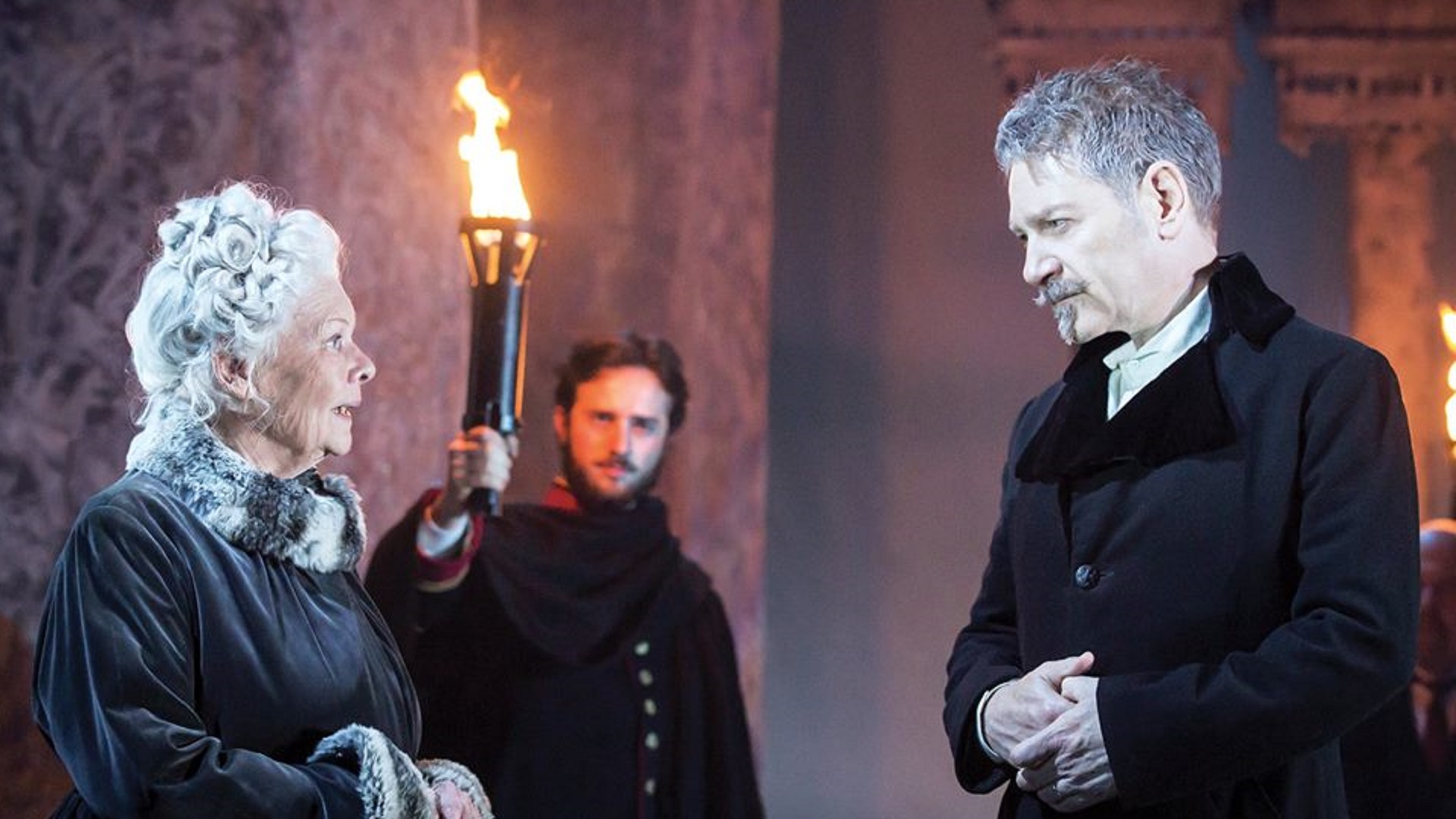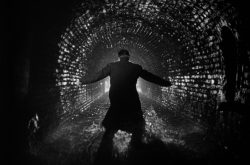Posted December 14, 2015
An Interview with Kenneth Branagh
By JBFC Marketing Manager Lori Zakalik
Film and stage actor Kenneth Branagh‘s new theater company is coming to the Burns!…sort of. We’re showing three of Branagh’s upcoming productions, starting with his adaptation of Shakespeare’s The Winter’s Tale on Thursday, December 24 and Tuesday, December 29 at noon and Tuesday, January 5 at 6:30 pm. Tickets for those screenings are on sale now!
For more on The Winter’s Tale and what’s next for Branagh, check out this interview courtesy of Picturehouse Entertainment:
You’ve directed and starred in many projects. Do you take a different approach to directing when you’re also a member of the cast?
It’s always very positive working with Rob Ashford because he’s a genuine co-director, so the difficult thing of trying to be in two places at once is removed. A lot of our co-directing work happens ahead of the rehearsal room period, so while I perform I concentrate on the role and the scene. At the beginning and end of the day we talk about observations I’ve had from inside the play. It works very well to have someone absolutely inside it and someone absolutely outside it. When it comes to this season that is the distinctive quality – there’s a genuine partnership behind the creation of both the production and the performance.
How do you think your stage production of The Winter’s Tale will translate to the big screen?
At the Garrick Theatre, because of the way the building is constructed, there is a sense of a cinema-like widescreen view from both the stalls and the circles. There is a beautiful horizontal view that chimes perfectly with the 2:35:1 cinema ratio. As a result our minds were always playing in widescreen when we were constructing the winter world of Sicilia and the spring/summer world of Bohemia, so the marriage between theatre and film was woven in from the beginning of our plans. I feel it’s an exciting and very happy marriage.
Were there accommodations made to the stage production so it could be filmed for cinema?
I think there has always been an awareness of how the two mediums can best convey the message. The first three acts of The Winter’s Tale are psychological drama which encourage the audience to experience the chaos that starts to occupy Leontes’ mind as he falls prey to the demon of jealousy. In a way it’s like an internal monologue. In the theatre, the desire was always to be inclusive of the audience and to let them feel as though they were eavesdropping, for them to be unwittingly part of Leontes’ internal monologue. The film camera goes one step further in getting even closer and making it more uncomfortable, so the visceral experience is different but just as powerful. Our approach, be it theatrical or cinematic, was to look for a psychological realism, so the audience could look at this man doing appalling things-albeit because he believed himself to be ‘right’’- and think ‘there but for the grace of God go I’.
Does that cinematic experience jar with that of a theatre audience member?
I see it more as an exciting tension. Personally I like my cinema experience of a play to not merely be a record of what was going on in the building that night; I love those involved in capturing it to meet the spirit of that production. So if a claustrophobic pyscho-drama is part of what the first three acts of The Winter’s Tale produces in the theatre, I want the film to get me closer into that world. And when it comes to the visceral experience of the theatre, where you can literally feel the thumps of feet on the floor during dancing sequences in the fourth act, I’d like film to also meet that challenge. So there’ll be a different, cutting rhythm to that sequence in order to convey a greater sense of that scene. There’s a percentage of enhancement and translation that goes into analysing the spirit of the production and then conveying it in the medium in which it now sits. And it keeps the theatre production honest. If performers have certain kinds of moments that produce a laugh, but that may have become a bit mechanical, the film camera requires that as a performer you have to retain the truthful position – to recreate, not just repeat. In that way the filmed performance can reinvigorate the production.
For audiences that are less familiar with Shakespeare, can you offer any advice on how best to embrace it?
When people ask me whether they should read the play beforehand, I always say no, because if we’ve done our job well there should be nothing between you and the play. One thing I learned early on as a viewer of Shakespeare is that it’s ok if you don’t understand everything, because when it works well, the intention behind the whole sentence will be such that you will intuit exactly what’s going on. A friend who hadn’t seen The Winter’s Tale before came to see it the other night and he said the only disappointing element of his evening was that he HAD read a synopsis of the play beforehand. He said if he hadn’t he would have had such a magical treat because the play is endlessly surprising and has some genuine shocks that he would have enjoyed experiencing for the first time. The other thing is that it’s ok not to enjoy everything – one doesn’t have to have an uncritical, slavish appreciation of Shakespeare. His theatre was used to robust criticism. I imagine so was he- maybe that’s why he wrote so many plays!
You’re one of the most highly acclaimed Shakespeare practitioners; do you feel pressure to continue topping your success?
I choose not to feel that kind of pressure. It’s best if you mark your own scorecard and with Shakespeare, you never get to the end of what’s possible. You can’t realise the potential of something that has such a level of richness. So your goal is not so much to be led by a series of outside expecations, although of course you’re thrilled and delighted if people enjoy it, it’s more about how far you get with the work itself. How honestly, directly, simply, clearly were those words spoken? Can you do better next time? The goal each time is to see if you can, rigorously from a technical point of view but also joyously from a creative point of view, go further into the work. Like great music or great poetry, these master works have a power even beyond one’s own conscious understanding of them – they sing of their own volition. You’re constantly motivated by trying to get further in that direction, rather than being intimidated by the notion that you might disappoint. Shakespeare is so good and always works so well that it’s hard to mess up what he does. Its important to get out of his way. He then makes you look good, so I’m a great beneficiary of the talent of somebody who went long before me.
You’ve worked with Benjamin Caron, who is directing the filming of the production, before. How have the two of you planned to translate The Winter’s Tale to the screen?
Coming from a television and film background Ben was very open about how best to translate the production to the screen. He was keen to know what Rob and my intentions were regarding the mood of certain scenes, and our use of music and linking passages, so he could establish how they should be filmed. What I found to be particularly helpful was that he is extremely sensitive to performance and atmosphere, as his work on the Wallander series proves. He also has a very strong sense of humour, so his feel for how to edit the comedy in the fourth act is very strong. Working with Ben has been a long and very fruitful conversation. This screening has had a lot of loving care lavished upon it, with many challenges, problems and issues being talked about a long way in advance. Ben has been with us since the first day of rehearsals in the theatre, and that history and rapport means that he has as sensitive an approach to handling the material as we could hope for, and much more than is usually possible to maintain when putting on a broadcast of a theatre show.
What’s next for the Kenneth Branagh Theatre Company, and are there plans to broadcast additional theatre productions in US cinemas?
We’re three plays into our seven-play season, and we’re very excited about our next production Red Velvet, about the black actor Ira Aldridge, and then a French farce called The Painkiller. Our next Shakespeare production will be broadcast to cinemas in the US, and that is Romeo and Juliet featuring Lily James and Richard Madden who starred in our recent film of Cinderella, alongside Derek Jacobi as Mercutio. I think it will be a very fast-moving, very musical, very filmic approach to this familiar but ever resonant and passionate play. We’re already planning how it translates to film, even this distance out. Our final production of the season is The Entertainer, John Osborne’s classic about the end of the British music hall and the life of one particular family who live through a big moment in Britain’s changing history. It’s full of invective and it’s full of drama and music and dance. It will also appear in cinemas across the US, and we hope that if we can build an appreciative and loyal audience for our cinema broadcasts that future work from our company will also find its way there. We’re very excited to begin with The Winter’s Tale and hope that we can encourage audiences to return.



